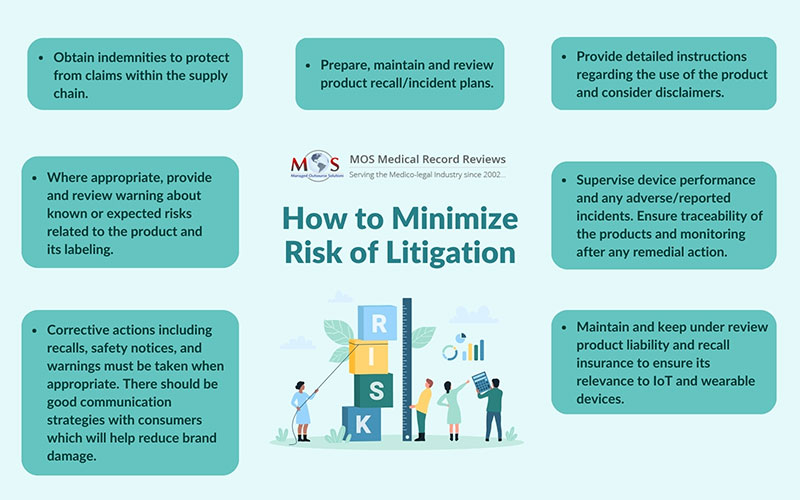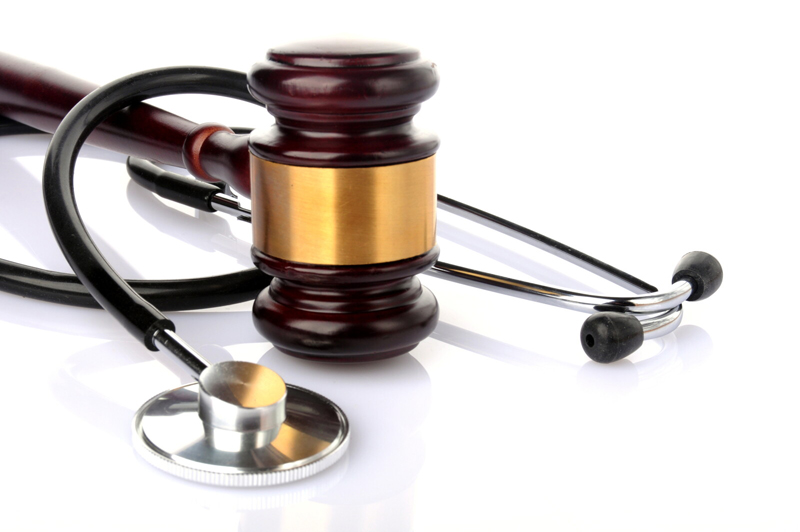Product liability and innovative technology – these aspects are linked together because there always exists the risk of defect/failure of the device and resulting personal injury. Technologies such as robotics, artificial intelligence, and the internet of things have a major effect on all industries including the medical and healthcare sectors. In the healthcare sector, we are witnessing an increasing influx of wearable technology, mobile health apps and lifestyle devices. The IoT or Internet of Things has increased the number of connected devices such as smart glasses, activity trackers, smartphones, tablets, smart speakers that respond to voice commands, and so on. This is the age of IoMT (Internet of Medical Things), which has brought about considerable improvements in healthcare quality and delivery. There are apps that help monitor your heart and pulse rates, blood pressure and provide medication reminders. If safety is compromised in any manner and the user injured in this present landscape, product liability cases arise wherein the injured person’s medical records and processes such as medical records analysis become imperative.
Contact MOS Medical Record Reviews for accurate medical records analysis and summarization.
Get a Free Trial!
Strict Liability Is Ambiguous when Software Is Involved
Typically, medical product liability claims arise when a person injured by a medical device or product brings a case against the manufacturer. Issues that hold the manufacturer at fault include failure to comply with authorized manufacturing procedures, and failure to provide proper instructions for use/warnings. In the present connected world, IoT or IoMT devices combine physical objects and specific technologies. According to the typical legal definition, connected devices include only physical or tangible objects. What about the manufacturers of the software (intangible technology) that is connected to a particular device and makes it work? Legal experts point out that when a physical object is combined with intangible technology, there also arises a new problem regarding strict product liability principles that maintain that a product manufacturer may be strictly liable for a product’s defect. Though there is no ambiguity as to this liability in the case of a physical device with no internet connectivity, it is somewhat vague in the case of IoT devices. This is because the technology or software component of an IoT device is usually manufactured by a separate entity. When an IoT device causes harm, there is confusion regarding which entity is to be held strictly liable.
Taylor Wessing, in her lexology.com article discusses some of the questions that are raised regarding how product liability law may be applied to connected devices.
- Is software a “product?” The present definition of a “product” may have to be changed to include connected devices and the software that runs them.
- Who is strictly liable? Is it the medical device manufacturer, system designer, software/network provider, patient, hospital or may be a hacker? Multiple defendants exist in such cases and liability must be carefully determined.
- What exactly is the defect? In connected devices, the defect can be a software bug, network failure, product design fault, or user error. The problem is that guidance is rather limited regarding the meaning of “defect” and it is even lesser in the case of advanced technologies such as wearable devices and IoMTs. A claimant will have to prove the defect in the state or behavior of the product or any risk that it holds that makes it unsafe and fall below the accepted standards.
- The expected safety standards of wearable devices and IoMTs are not well delineated. Moreover, there is no universal safety standard for connected devices. The relevant time periods for determining the expected safety standard could also pose issues. When will safety be expected – at the time the product is made available on the market, or are other times also likely to become relevant such as when updates are due on the software?
- What about user fault? Wrong use of the product, failure to follow the given instructions, and failure to maintain the product with necessary updates may also become significant.
We provide timely and accurate medical review services for product liability attorneys.
Call us TODAY.
Wearable Healthcare Devices – Uses and Risks
Medical devices such as implantable cardiac devices transmit data from the device to the treating physicians so that they can directly and in real time monitor the patients and the devices. When it comes to the internet of things, this device could be vulnerable to unauthorized access. Or a bug in the software could misinterpret the data, make the device malfunction and thereby cause harm to the patient. When the defect is in the software, the problem of liability cannot be clearly established because courts have not clearly specified whether software is a product for purposes of strict product liability. Legal experts expect courts to consider software in IoT devices as a service rather than a product.
Wearable devices contain a large amount of data, and this may be utilized as evidence in injury litigation to support or dismiss a claim. This data relates to the health of the user and could be considered as significant as medical records in personal injury claims to evaluate the intensity of an injury.
Product Liability in the Scenario of e-Commerce Platforms and Online Marketplaces
In the current business scenario, you can buy products from any part of the world. The issue here is that it becomes difficult to judge which party is liable for the defective product. Traditional laws of product liability may not be able to properly address the subtle nuances of digital commerce.
Autonomous Systems, AI, and Product Liability
Consider the instance of self-driving cars, wherein it is challenging to draw the line between human error and machine malfunction. To handle such cases, legal teams must understand the AI algorithms applicable and their decision-making processes.
Design of the Product and User Interface
User interfaces need to be intuitive to prevent unauthorized or unintended operation and minimize user errors. Poor designs and inadequate warnings may lead to product misuse and associated accidents.

If a claim is brought, it is best to consult a legal expert to obtain advice regarding the preservation of necessary documents, and other details.
The impact of technology on product liability is a topic much discussed these days. However, whatever be the reason for a product liability lawsuit, personal injury is at its center. This emphasizes the value of credible medical records. Medical records are very important in a product liability claim and they are useful for the defense side to determine pre-existing conditions before using the medical device/product. For the plaintiff side too, these valuable documents are clear evidence of the injury and its aftereffects. Providers of medical review services are called upon to review various types of medical records – admission and discharge records, progress notes, ER records, physician orders, operating room records, medication and lab reports and so on. Thus, detailed medical documentation has a major impact on the outcome of a product liability case, which means that providers must pay special attention to accurate and reliable medical records.




